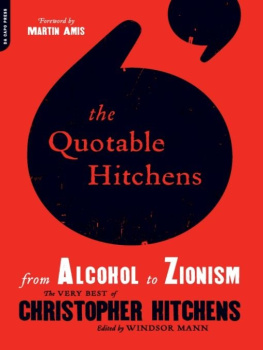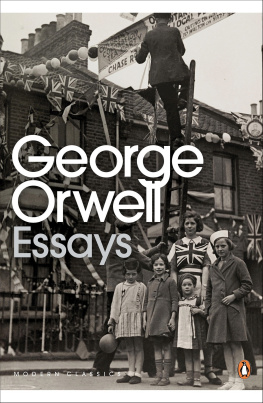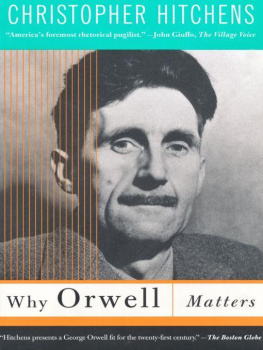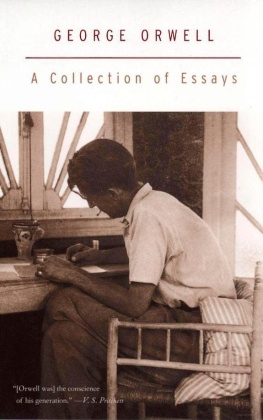PREPARED FOR THE WORST
ALSO BY CHRISTOPHER HITCHENS
Books
Hostage to History: Cyprus from the Ottomans to Kissinger
Blood, Class, and Empire: The Enduring Anglo-American Relationship
Imperial Spoils: The Curious Case of the Elgin Marbles
Why Orwell Matters
No One Left to Lie To: The Triangulations of William Jefferson Clinton
Letters to a Young Contrarian
The Trial of Henry Kissinger
Thomas Jefferson: Author of America
Thomas Paines Rights of Man: A Biography
god Is Not Great: How Religion Poisons Everything
The Portable Atheist
Hitch-22: A Memoir
Mortality
Pamphlets
Karl Marx and the Paris Commune
The Monarchy: A Critique of Britains Favorite Fetish
The Missionary Position: Mother Teresa in Theory and Practice
A Long Short War: The Liberation of Iraq
The Enemy
Essays
Prepared for the Worst: Essays and Minority Reports
For the Sake of Argument
Unacknowledged Legislation: Writers in the Public Sphere
Love, Poverty, and War: Journeys and Essays
Arguably
Collaborations
James Callaghan: The Road to Number Ten (with Peter Kellner)
Blaming the Victims (edited with Edward Said)
When the Borders Bleed: The Struggle of the Kurds
(photographs by Ed Kash)
International Territory: The United Nations
(photographs by Adam Bartos)
Vanity Fairs Hollywood (with Graydon Carter and David Friend)
First published in Great Britain in 1988
by Chatto & Windus
This edition published in Great Britain in 2014 by Atlantic Books, an imprint of Atlantic Books Ltd.
Copyright Christopher Hitchens, 1988
The moral right of Christopher Hitchens to be identified as the author of this work has been asserted by him in accordance with the Copyright, Designs and Patents Act of 1988.
All rights reserved. No part of this publication may be reproduced, stored in a retrieval system or transmitted in any form or by any means, electronic, mechanical, photocopying, recording or otherwise, without the prior permission of both the copyright owner and the above publisher of this book.
10 9 8 7 6 5 4 3 2 1
A CIP catalogue record for this book is available from the British Library.
Trade Paperback ISBN: 978 1 78239 466 2
E-Book ISBN: 978 1 78239 499 0
Printed in Great Britain
Atlantic Books
An Imprint of Atlantic Books Ltd
Ormond House
2627 Boswell Street
London
WC1N 3JZ
www.atlantic-books.co.uk
For Ben Sonnenberg
CONTENTS
PREPARED FOR THE WORST
INTRODUCTION
NADINE GORDIMER once wrote, or said, that she tried to write posthumously. She did not mean that she wanted to speak from beyond the grave (a common enough authorial fantasy), but that she aimed to communicate as if she were already dead. Never mind that that ambition is axiomatically impossible of achievement, and never mind that it sounds at once rather modest and rather egotistic, to say nothing of rather gaunt. When I read it I still thought: Gosh. To write as if editors, publishers, colleagues, peers, friends, relatives, factions, reviewers, and consumers need not be consulted; to write as if supply and demand, time and place, were nugatory. What a just attainment that would be, and what a pristine observance of the much-corrupted pact between writer and reader.
The essays, articles, reviews, and columns that comprise Prepared for the Worst do not meet, or approach, the exacting Gordimer standard in any respect. In fact, so far from addressing people posthumously, I feel rather that Im standing over my collection like an anxious parent. Friends and even acquaintances tend naturally to praise my little son, at least to my face, and Ive become used to inserting the descant of allowances for myself: youve got to realize that hes a bit spoiled; hes keener to talk than he is on what hes saying; hes a bit lacking in concentration; and so on. Still, the teacher did say just the other day that he was very inquiring and showed distinct promise. Sympathetic, encouraging nods all around.
You dont get that kind of indulgence for your prose. Hopeless, then, to seek to justify the ensuing. Yes, the piece on Reagans mendacity was written to the tune of an emollient week in the national press; yes, the review of Brideshead was composed in response to a TV travesty then in vogue; yes, the report from Beirut understates the horror (didnt everybody?). But then, might it not be said that the Polish article has a dash of prescience? The Paul Scott essay perhaps a hint of perspective? Forget it. Never explain; never apologize. You can either write posthumously or you cant.
Fortunately, Ms. Gordimer does set another example that a mortal may try to follow. She combines an irreducible radicalism with a certain streak of humor, skepticism, and detachment. She is also a determined internationalist. My choice among her novels would be A Guest of Honor, wherein the central character sees his beloved revolution besmirched and yet does not feel temptedentitled might be a better wordto ditch his principles. The whole is narrated with an exceptional clarity of eye, ear, and brain, and there is no sparing of progressive illusions. The result is oddly confirming; you end by feeling that the attachment to principle was right the first time and cannot be, as it were, retrospectively abolished by the calamitous cynicism that only idealists have the power to unleash.
Most of the articles and essays in this book were written in a period of calamitous cynicism that was actually inaugurated by calamitous cynics. It wasIm using the past tense in a hopeful, nonposthumous mannera time of political and cultural conservatism. There was a ghastly relief and relish in the way in which inhibitionagainst allegedly confining and liberal prejudiceswas cast off. In the United States, this saturnalia took the form of an abysmal chauvinism, financed by MasterCard and celebrating a debased kind of hedonism. In Britain, where there were a few obeisances to the idea of sacrifice and the postponement of gratification, it took the more traditional form of restoring vital incentives to those who had for so long lived precariously off the fat of the land. In both instances, the resulting vulgarity and spleen were sufficiently gross to attract worried comment from the keepers of consensus.
Now, I have always wanted to agree with Lady Bracknell that there is no earthly use for the upper and lower classes unless they set each other a good example. But I shouldnt pretend that the consensus itself was any of my concern. It was absurd and slightly despicable, in the first decade of Thatcher and Reagan, to hear former and actual radicals intone piously against the politics of confrontation. I suppose that, if this collection has a point, it is the desire of one individual to see the idea of confrontation kept alive.
Periclean Greeks employed the term idiotis, without any connotation of stupidity or subnormality, to mean simply a person indifferent to public affairs. Obviously, there is something wanting in the apolitical personality. But we have also come to suspect the idiocy of politicizationof the professional pol and power broker. The two idiocies make a perfect match, with the apathy of the first permitting the depredations of the second. I have tried to write about politics in an allusive manner that draws upon other interests and to approach literature and criticism without ignoring the political dimension. Even if I have failed in this synthesis, I have found the attempt worth making.















